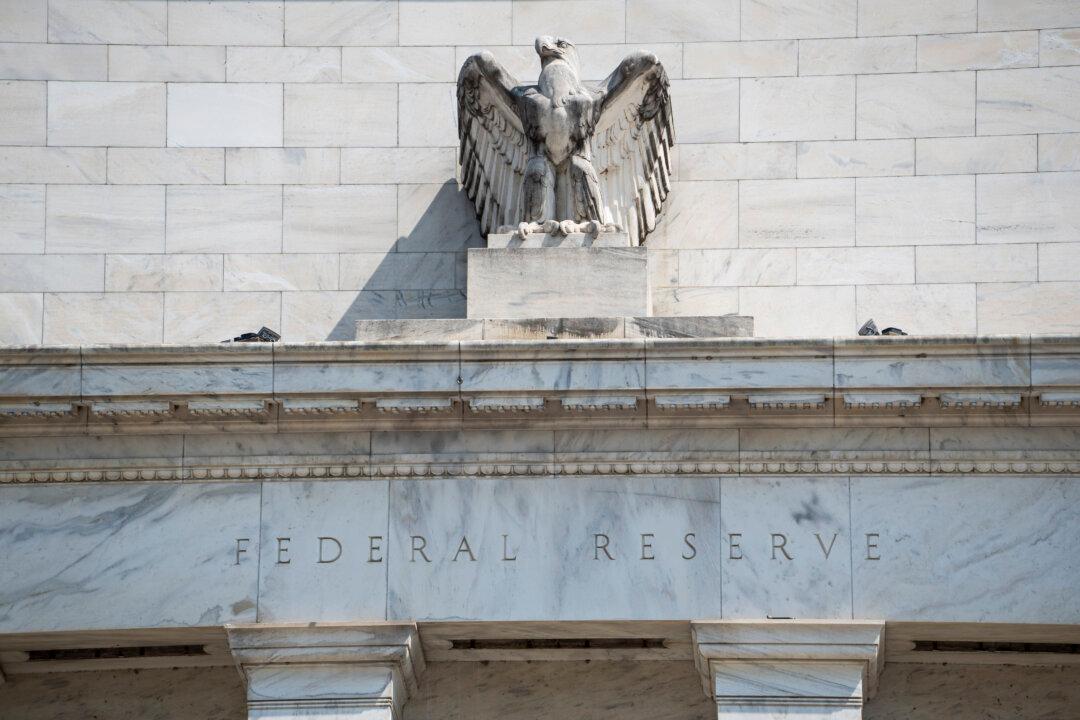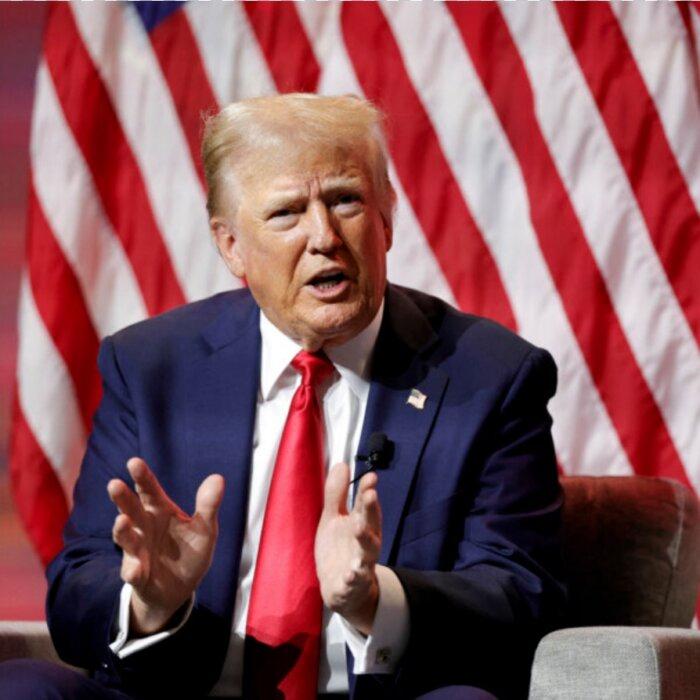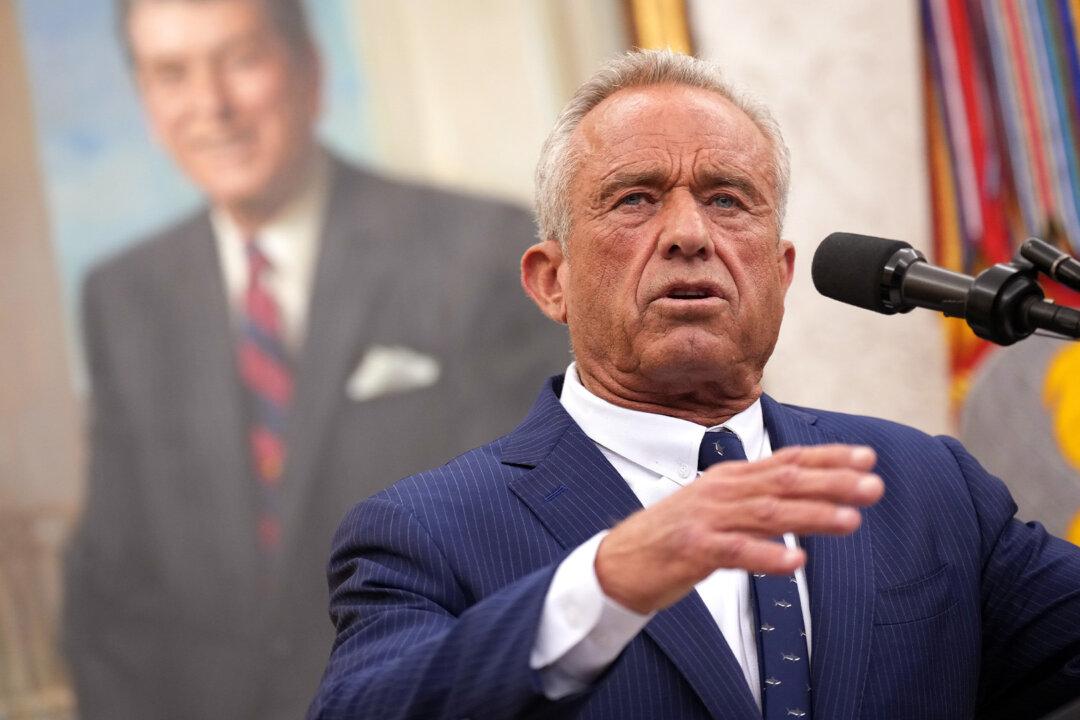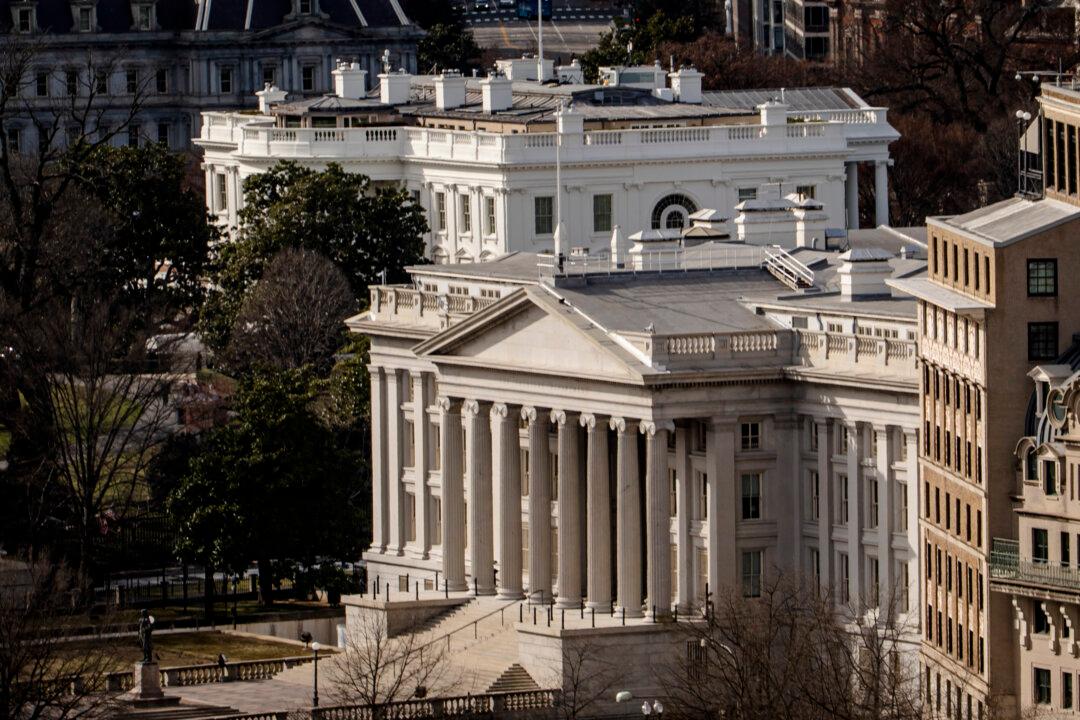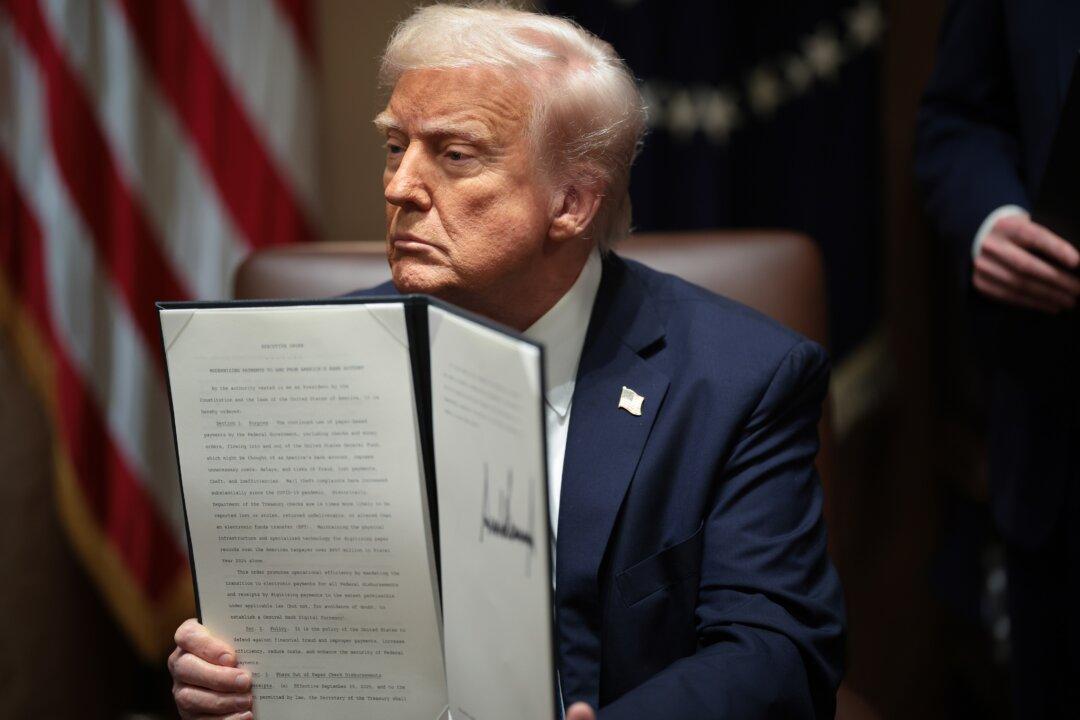Good morning, and welcome to The Epoch Times News Brief for Tuesday, Aug. 6, 2024. I’m Bill Thomas, we have some really pressing stories to share with you today, and here’s what’s going on.
The central bank is prepared to step in if the economy gets much worse, a federal judge rules against Google in a landmark antitrust case, and Johns Hopkins University is ordered to pay out millions more in a class action lawsuit. Also, former President Donald Trump faces a couple of legal setbacks, and a man who wants to be president says he’s the guy behind the mystery of a dead bear cub.
Fed Official Responds to Market Meltdown
A senior Federal Reserve official says that the U.S. central bank is prepared to step in with emergency rate cuts if the economy takes a sharp downturn, although he suggested that markets were overreacting during yesterday’s sell-off, which left the Dow down more than 1,000 points at the closing bell.Data that came out last week showed deterioration in the U.S. labor market and manufacturing. The data included an 11-month high in initial jobless filings, with job creation numbers that came in well below expectations, and an unemployment rate that jumped higher than anticipated.
Market reaction was immediate, with stocks and other risky assets selling off, but recent news sparked further panic when the VIX, the volatility index, jumped to its highest level since the COVID-19 pandemic. The VIX is a measure of stock market volatility, and that’s what caused the markets to drop even further.
Austan Goolsbee, president of the Federal Reserve Bank of Chicago, told CNBC that the Fed is always prepared to respond if the situation deteriorates, and that their job is to stabilize prices and maximize employment. Goolsbee also went on to warn market watchers not to jump to conclusions from a single jobs report, especially when the job creation number was roughly equivalent to the margin of error.
When asked whether he sees any other indicators besides last week’s negative manufacturing data and labor market challenges, Goolsbee pointed to the rise in consumer delinquencies and an uptick in small business defaults.
But, on the flip side, he said that the gross domestic product (GDP) data has come in quite strong, indicating economic growth at a “fairly steady level.”
Goolsbee’s remarks follow Wall Street’s main indexes, which as you know, tanked yesterday, as fears of a nationwide recession rippled through the global markets.
Federal Court Rules Against Google in Landmark Antitrust Case
In a landmark legal decision, a federal judge has ruled that Google violated antitrust laws by maintaining its monopoly power in the markets for general search services and general search text advertisements.The ruling, issued by Judge Amit Mehta, ends a years-long legal battle initiated by the U.S. Department of Justice and a coalition of state attorneys general.
Mehta’s decision states that after having carefully considered and weighed witness testimony and evidence, the court has decided that Google is a monopolist and has violated Section 2 of what’s called the Sherman Act.
The case against Google, which was filed in October 2020, alleged that the tech giant engaged in anti-competitive practices by establishing exclusive agreements with browser developers, mobile device manufacturers, and wireless carriers.
So you know, those agreements prevented partners from pre-installing rival search engines, leading most U.S. devices to come preloaded exclusively with Google, forcing competitors to find alternative ways to reach users.
The court said Google’s conduct allowed the company to charge companies with what’s legally described as “supracompetitive prices for general search text ads,” enabling them to earn substantial monopoly profits.
In defense, Google said that its practices were pro-competitive and justified by the quality of its services.
Google said it plans to appeal and that “this decision recognizes that Google offers the best search engine, but concludes that we shouldn’t be allowed to make it easily available.
The judge’s ruling suggests the possibility of structural relief as a remedy, which would involve changes to Google’s business operations, including terminating exclusive agreements that make Google’s search engine the default option.
You should know that this case is seen as the most significant antitrust trial of the century, and antitrust lawsuits have also been filed against other big tech companies, including Amazon, Meta, and Apple.
Judge Orders Johns Hopkins to Pay Millions
Johns Hopkins University has been ordered to pay an additional $2 million to students who paid tuition for the first semester of 2020, but were not refunded after the university canceled classes due to the COVID-19 pandemic. At the time, university officials said that offering online-only classes fulfilled the contract it entered with students.Last week, U.S. District Judge Julie Rubin signed the order after the university and plaintiffs, led by a former student, said they found more than 2,600 students who paid for the 2020 spring semester but did not receive refunds. By the way, court documents state that tuition fees for a semester at that time cost at least $26,150.
Nearly 11,000 students or former students have already received or are awaiting payouts from the fund. The amount each person receives depends on a variety of factors, including how much they paid in tuition, along with payments through student loans. Scholarships are exempt from refunds.
Johns Hopkins was ordered to deposit the money into the settlement fund before the end of the year. The school was previously ordered to pay about $8 million into that same fund.
Interesting to note that in addition to the $10 million being paid to students and former students, the university was also ordered to pay $2.2 million to attorneys representing the plaintiffs.
US Supreme Court Won’t Block Trump’s Sentencing and Gag Order in New York Case
The high court has just rejected a bid by the state of Missouri to delay Trump’s sentencing date for his New York felony conviction until after the November election. Yesterday, the high court issued its one-paragraph decision, which also left the gag order imposed by the New York judge against Trump intact. The gag order blocks Trump from publicly commenting on witnesses, court staff, members of the jury, and other individuals connected to the trial other than the judge and Manhattan District Attorney Alvin Bragg, who brought the case.Missouri’s Attorney General Andrew Bailey filed a petition weeks ago to the high court, arguing that the New York case infringed on the rights of voters and electors in his state ahead of the election. Bailey also added the case was meant to smear the former president. As you know, Trump is the Republican Party’s nominee for president in the general election, which is just a few months away.
By the way, while Bailey contended that the conviction would likely be overturned on appeal, he added that the constraints that New York put on Trump would “limit his ability to campaign.”
To refresh your memory, Trump was found guilty in May for falsifying business records to cover up a $130,000 payment to adult film actress Stormy Daniels at the end of the 2016 election. Prosecutors said the payment was intended to bolster his presidential campaign at that time.
Interesting to note that New York Attorney General Letitia James wrote that Missouri does not have legal standing to challenge the Trump case.
You should know that Trump is scheduled to be sentenced on Sept. 18.
RFK Jr. Says He Was Behind the 2014 Central Park Dead Bear Mystery
Robert F. Kennedy Jr. has confirmed that he is the person who dumped a dead bear cub in New York City’s Central Park 10 years ago.In a video posted on his X account on Sunday, the 70-year-old independent presidential candidate recounted the highly unusual circumstances that stumped the city for the past decade.
According to Kennedy, he was driving through New York’s Hudson Valley early one morning in 2014 on a falconry trip with a group of friends when a driver in front of him hit a bear cub, killing it. He says he picked up the bear and put it in the back of his van, with the intention of skinning it and saving the meat in his freezer for food.
Kennedy said that New York state law allows taking home a roadkill bear, but only after notifying law enforcement or the state’s environment authority and getting a special bear tag. The problem for RFK Jr. was that he ran out of time to take the bear back to his home in Westchester before having to catch a flight.
So he and some of his intoxicated friends thought it would be a good idea to make it look like the bear cub got hit by a bike since there had been several local bike accidents at the park.
The dead bear cub sparked a media frenzy after it was discovered, including a reporter from the New York Times who happened to be Kennedy’s niece, Tatiana Schlossberg.
According to Schlossberg’s report, law enforcement took the bear for analysis and determined that it had been hit by a car. A wildlife expert also weighed in, saying someone might have killed the bear and taken it to Central Park.
And now, it looks like our time is just about up for today, so we’re going to call it a wrap for the Tuesday edition of The Epoch Times News Brief.
Whatever you have planned for today, when you’re out and about, it would mean so much to us if you could tell some people you know about our program. Thank you in advance for helping us grow the News Brief family, and as you know by now, we are trying to become the biggest brief on the block.
We heard from Robert, who says he’s retired, living the good life, and enjoying the News Brief. Debi Worth dropped us a very lovely note, as did Stellar Jay, Morrow, and Shillon.
*(Don’t forget the News Brief Motto): We’re portable, affordable, and always on-demand.
And finally, as we do each and every day on this program, we wrap everything up with a very notable quote, and this one comes to us from Frédéric Chopin, who said: “Bach is an astronomer, discovering the most marvelous stars. Beethoven challenges the universe. I only try to express the soul and the heart of man.”
Interesting fact: Barry Manilow’s hit song from 1975, “Could It Be Magic,” was inspired by Chopin’s Prelude in C minor, Opus 28, No. 20.
Before we go, you should know that today is National Root Beer Float Day! If you’re going to make one, you need to use the best root beer, which is A&W or Hires, and only the very best vanilla ice cream.
For all of us here at The Epoch Times News Brief, I’m Bill Thomas.
Thank you for making us your one-stop source for a concise, accurate, and unbiased daily synopsis of many of the news stories you need to know about.
Enjoy the remainder of your Tuesday, and we’ll see you right back here tomorrow for another edition of The Epoch Times News Brief. Let’s all continue to watch out for one another, have a superb day today, and bye for now.
